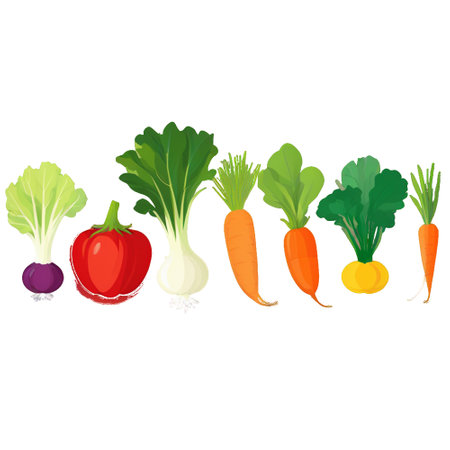Introduction to the Plant-Based British Wholefood Diet
The concept of a plant-based wholefood diet has steadily gained traction in the United Kingdom, blending modern nutritional science with time-honoured culinary traditions. At its core, a plant-based wholefood diet emphasises consuming minimally processed foods derived from plants—vegetables, fruits, legumes, whole grains, nuts, and seeds—while avoiding or significantly reducing animal products and highly processed items. What makes the British approach unique is how it integrates local produce and regional specialities into this dietary framework. From classic root vegetables such as carrots, parsnips, and swedes to traditional grains like oats and barley, the British Isles offer a wealth of seasonal ingredients that support both health and sustainability. Furthermore, longstanding favourites such as pea soup, rhubarb crumble (with a nutty oat topping), and hearty stews made with pulses reflect the adaptability of British cuisine to a plant-focused philosophy. By embracing these native foods and reimagining beloved recipes through a wholefood lens, the plant-based British diet not only nourishes the body but also celebrates local heritage.
Health Benefits Specific to the British Context
Adopting a plant-based wholefood diet in Britain brings distinct health advantages that align well with both contemporary British lifestyles and prevailing public health concerns. Historically, traditional British diets have included substantial amounts of animal products and processed foods—trends linked with rising rates of obesity, cardiovascular disease, and type 2 diabetes across the UK. By shifting towards a diet centred on vegetables, fruits, legumes, whole grains, nuts, and seeds, individuals may experience several nutritional and holistic benefits particularly relevant to the British context.
Nutritional Advantages
The British climate supports a diverse range of local produce such as root vegetables, brassicas (like kale and cabbage), oats, and berries. These ingredients form the backbone of a plant-based wholefood approach, providing abundant fibre, antioxidants, vitamins (notably C and K), and essential minerals. Increased intake of these nutrients is associated with better digestive health, improved immune function, and reduced inflammation—key considerations given the UK’s high incidence of gastrointestinal issues and seasonal illnesses.
Comparison: Traditional vs Plant-Based Wholefood Diets in the UK
| Aspect | Traditional British Diet | Plant-Based Wholefood Diet |
|---|---|---|
| Main Protein Sources | Red meat, poultry, processed meats | Legumes (lentils, peas), beans, nuts, seeds |
| Common Carbohydrates | Refined grains (white bread), potatoes | Whole grains (oats, barley), sweet potatoes |
| Fibre Intake | Often below recommended levels | Consistently high from varied sources |
| Saturated Fat Content | High due to animal products & fried foods | Low; focus on unsaturated fats from plants |
| Micronutrients Emphasised | B12 from meat; low plant diversity limits others | Diverse vitamins/minerals from wide plant range |
Tackling Common Health Concerns in Britain
A plant-based wholefood diet can directly address several health challenges prevalent in the UK:
- Heart Disease: Lower intake of saturated fat and cholesterol helps manage blood pressure and reduce heart disease risk—a leading cause of mortality in Britain.
- Obesity: High-fibre foods promote satiety and stable blood sugar levels, aiding weight management without calorie counting.
- Mental Health: Emerging research suggests diets rich in leafy greens, berries, nuts, and seeds may support mental wellbeing—an increasingly important issue in UK society.
- Sustainability: Plant-based eating supports environmental goals by reducing reliance on imported or intensively farmed animal products.
Cultural Adaptation for Everyday Life
The flexibility of this dietary approach means classic British meals—think stews, pies, porridge—can be reimagined using locally grown produce without sacrificing comfort or tradition. This not only enhances nutritional quality but also makes it easier for individuals and families to integrate healthier choices into their routines in a sustainable manner.

3. Common Challenges and How to Overcome Them
Adopting a plant-based wholefood diet in the UK is not without its hurdles. Many Britons find themselves grappling with practical and social barriers when making this lifestyle change, particularly when it comes to eating out, sourcing local ingredients, and honouring cherished traditional meals.
Eating Out: Navigating Limited Plant-Based Options
Despite the rise of plant-based menus in British restaurants, finding truly wholefood options can still be a challenge, especially outside major cities. Classic British pubs and high street eateries often focus on meat-heavy or processed vegetarian dishes. To address this, it’s worth researching menus ahead of time, seeking out independent cafes that champion local produce, or suggesting venues with flexible kitchens willing to adapt dishes. Joining online plant-based communities can also offer up-to-date tips on the best spots for plant-based dining across the UK.
Shopping Locally: Access and Affordability
While Britain boasts an abundance of farmers’ markets and greengrocers, access to fresh, affordable produce varies by region. Urban areas may offer more choice, but rural communities can face limited selection and higher prices. Overcoming this involves building relationships with local producers, participating in veg box schemes, or joining community-supported agriculture (CSA) groups. Planning meals around seasonal British crops such as root vegetables in winter and berries in summer helps keep costs down while supporting local farmers.
Navigating Traditional Meals and Social Occasions
The British culinary calendar is rich with tradition—think Sunday roasts, Christmas dinners, and afternoon tea. Transitioning to a plant-based wholefood diet can feel socially isolating during these events. One approach is to reinterpret classics using plant-based ingredients: nut roasts instead of beef, lentil shepherd’s pie, or oat scones served with homemade fruit compote. Openly communicating dietary choices with friends and family often leads to understanding and even curiosity about plant-based alternatives. Hosting your own gatherings can also be an opportunity to showcase creative takes on beloved British fare.
Practical Tips for Everyday Success
Preparation remains key: batch-cooking soups and stews using British pulses like marrowfat peas or split lentils ensures quick meals on busy days. Keeping a well-stocked larder of oats, barley, and native grains provides the basis for nutritious breakfasts and hearty salads. Investing time in learning basic cooking techniques—such as roasting seasonal veg or baking wholemeal bread—can make plant-based eating both enjoyable and sustainable.
Embracing Community Support
No one needs to go it alone. The growing network of UK-based plant-based groups—both online and offline—offers recipe swaps, meet-ups, and encouragement for those navigating challenges unique to the British food landscape. By sharing experiences and resources, individuals can help each other overcome obstacles on the path towards a healthier, more sustainable way of eating.
4. British Wholefood Staples and Seasonal Produce
One of the greatest strengths of adopting a plant-based wholefood diet in the UK is the wealth of local and seasonal produce available year-round. Embracing locally-grown staples not only supports regional farmers but also ensures you’re eating food at its freshest and most nutritious. Highlighting these foods can help foster a deeper connection with British culinary heritage, while reducing your environmental footprint.
British Wholefood Staples
Across the UK, certain plant-based wholefoods have long held cultural significance and remain widely available. These include:
| Staple | Region/Notes | Common Uses |
|---|---|---|
| Porridge Oats | Scotland & Nationwide | Breakfasts, Baking, Savoury Dishes |
| Maris Piper Potatoes | England & Scotland | Mash, Roasts, Chips |
| Barley | Scotland & Northern England | Soups (e.g., Scotch Broth), Stews |
| Bramley Apples | England (Nottinghamshire) | Desserts, Sauces, Pies |
| Cabbage & Kale | Nationwide | Sautéed, Soups, Bubble and Squeak |
| Lentils & Peas (e.g., Marrowfat Peas) | Nationwide (Yorkshire for Peas) | Mushy Peas, Stews, Plant Protein Source |
| Rhubarb (Yorkshire Forced Rhubarb) | Yorkshire & Nationwide (Seasonal) | Desserts, Compotes, Porridge Topping |
| Carrots & Parsnips | Nationwide (Peak in Winter) | Roasts, Soups, Grated into Salads |
| Blackcurrants & Gooseberries | Nationwide (Summer) | Puddings, Jams, Juices |
Sourcing Local and Seasonal Produce: Tips for Success
- Farmers’ Markets: Regularly visit local farmers’ markets to discover what’s in season and grown nearby. Many producers offer organic or low-intervention options.
- Veg Box Schemes: Subscribe to a vegetable box delivery service—many UK schemes prioritise seasonal produce from regional farms.
- Community Supported Agriculture (CSA): Join a CSA project where you can receive a share of the harvest directly from local growers.
- Allotments & Home Growing: If you have access to an allotment or garden space, try growing hardy staples like kale, potatoes, or rhubarb yourself for unmatched freshness.
- Supermarkets: Look for “Red Tractor” or “Soil Association” labels to identify British-grown and organic wholefoods.
The Value of Eating with the Seasons in Britain
The British climate encourages a dynamic rotation of produce throughout the year. In winter, root vegetables such as swede and parsnip shine; in spring and summer, soft fruits like strawberries and blackcurrants take centre stage. By adapting your meals to these natural cycles, you’ll not only enjoy varied flavours but also support sustainable farming practices rooted in local tradition.
Culturally-Inspired Plant-Based Meals Using Local Staples
- Lancashire Hotpot: Traditionally meat-based but easily adapted with lentils, root vegetables, and barley.
- Bubble and Squeak: A classic way to use leftover cabbage and potatoes after a Sunday roast—simply fry together until golden.
- Porridge with British Berries: Oats simmered with water or plant milk, topped with blackcurrants or rhubarb compote.
Sourcing local plant-based wholefoods and embracing Britain’s seasonal bounty can enrich your diet both nutritionally and culturally. It’s a practical way to celebrate national food heritage while moving towards a more sustainable lifestyle.
5. Inspirations from Classic British Cuisine
One of the greatest joys of adopting a plant-based wholefood British diet is the opportunity to reimagine beloved classics using wholesome, locally-sourced ingredients. Rather than abandoning the traditional fare that defines British food culture, we can reinterpret these dishes to suit a more sustainable and health-conscious lifestyle. For example, consider the humble Sunday roast—a staple in many households. By swapping out roast beef for roasted root vegetables such as parsnips, carrots, and beetroot, and replacing Yorkshire puddings with a chickpea flour version, you retain the essence of the meal while making it completely plant-based. Another classic, shepherd’s pie, can be reinvented using lentils or finely chopped mushrooms to mimic the texture of minced meat, layered beneath creamy mashed potatoes made with olive oil or oat milk.
Fish and chips is another iconic dish that lends itself well to creative adaptation. Thick-cut potato chips paired with battered slices of celeriac or marinated tofu provide a satisfying crunch and familiar flavours without relying on seafood. Peas—either mushy or minted—remain a perfectly authentic accompaniment. Similarly, a hearty full English breakfast can be recreated with grilled tomatoes, baked beans, sautéed mushrooms, hash browns, and homemade plant-based sausages crafted from oats and spices. Even desserts such as sticky toffee pudding can be made with dates and wholemeal flour for a rich, satisfying treat without processed sugars or dairy.
Drawing inspiration from Britain’s culinary heritage not only preserves a sense of cultural identity but also encourages innovation in the kitchen. Local markets and seasonal produce offer endless possibilities for experimentation—think beetroot Wellington in place of beef Wellington or nut roasts flavoured with sage and onion. By embracing these plant-based versions of time-honoured recipes, we celebrate tradition while paving the way for healthier and more environmentally friendly eating habits across the UK.
6. Community, Sustainability, and the UK Food Movement
The intersection of plant-based wholefood eating with sustainability and community initiatives is a defining feature of the modern British food landscape. Across the UK, individuals and organisations are recognising that dietary choices extend beyond personal health—they have tangible impacts on the environment, local economies, and social cohesion.
Championing Local Farming and Food Systems
There has been a noticeable rise in support for British growers and producers who prioritise organic, seasonal, and plant-based produce. Farmers’ markets, veg box schemes, and community-supported agriculture (CSA) projects are gaining popularity in both urban and rural areas. These initiatives not only provide fresher, lower-impact foods but also foster closer relationships between consumers and those who grow their food. By choosing locally sourced wholefoods, Britons contribute to reduced food miles, lower carbon emissions, and the preservation of agricultural biodiversity.
Sustainability Through Collaboration
Many grassroots groups and charities across the UK—such as The Soil Association, Incredible Edible, and Sustain—work tirelessly to promote sustainable plant-based diets. They educate communities about reducing food waste, encourage home growing through allotment networks, and advocate for public policies that support ethical sourcing in schools, hospitals, and workplaces. This collaborative spirit is helping to embed sustainability into everyday eating habits.
Community-Led Inspiration
Community kitchens, cookery clubs, and local events like Plant-Based Week highlight how collective action can inspire lasting change. By sharing recipes rooted in British tradition but adapted for a wholefood plant-based approach, these gatherings celebrate inclusivity while preserving culinary heritage. Moreover, they demonstrate that sustainable eating need not be exclusive or expensive—it thrives best when supported by strong community bonds.
Ultimately, the plant-based wholefood movement in Britain is about more than what’s on your plate; it’s about building resilient local food systems, protecting the environment for future generations, and nurturing connections within communities. As this movement grows, it offers a hopeful blueprint for a more sustainable and united future in the UK.


